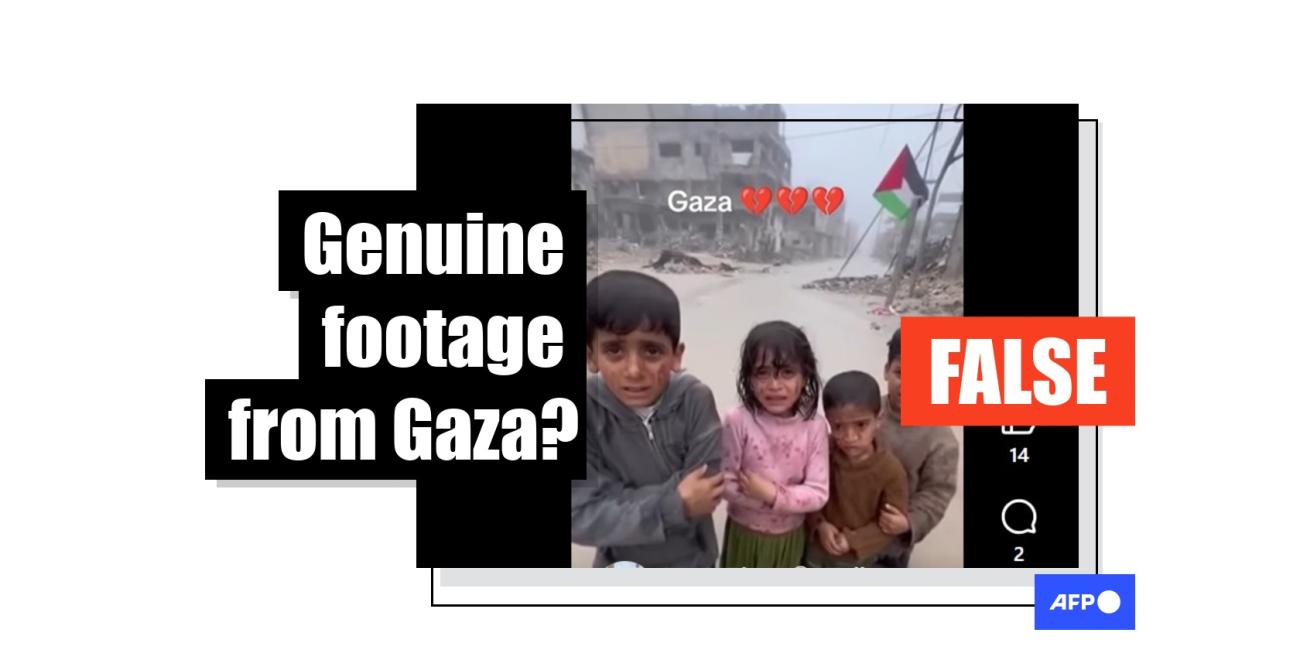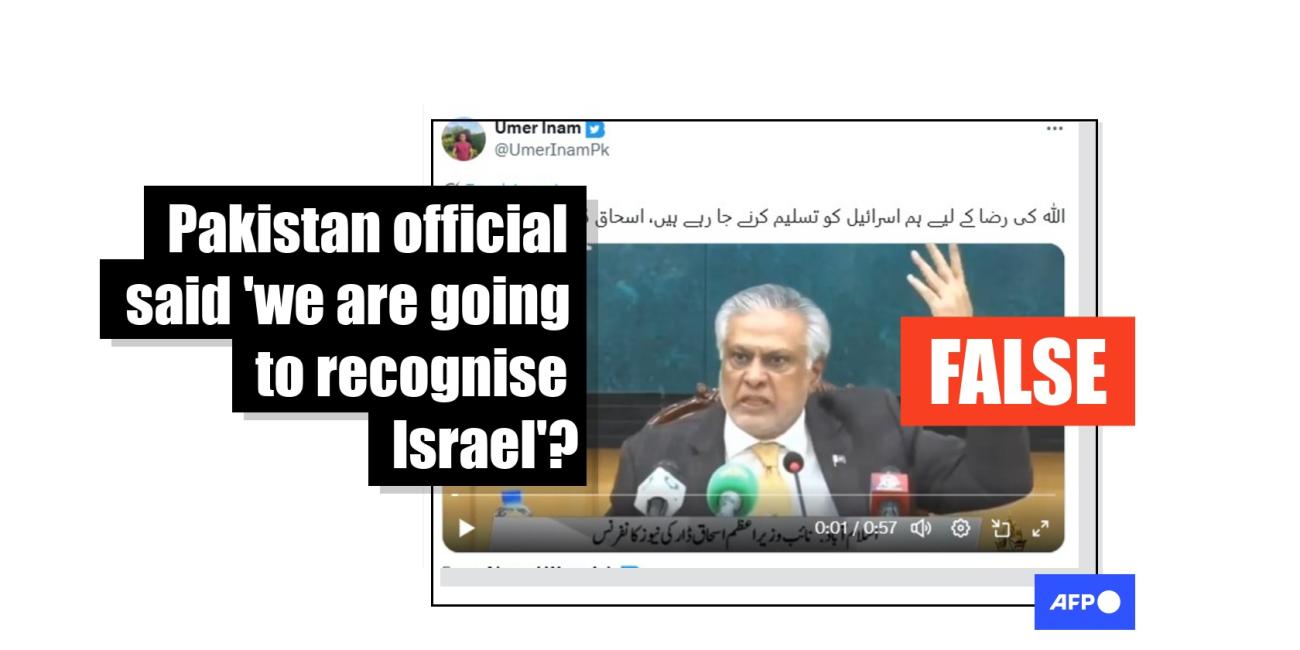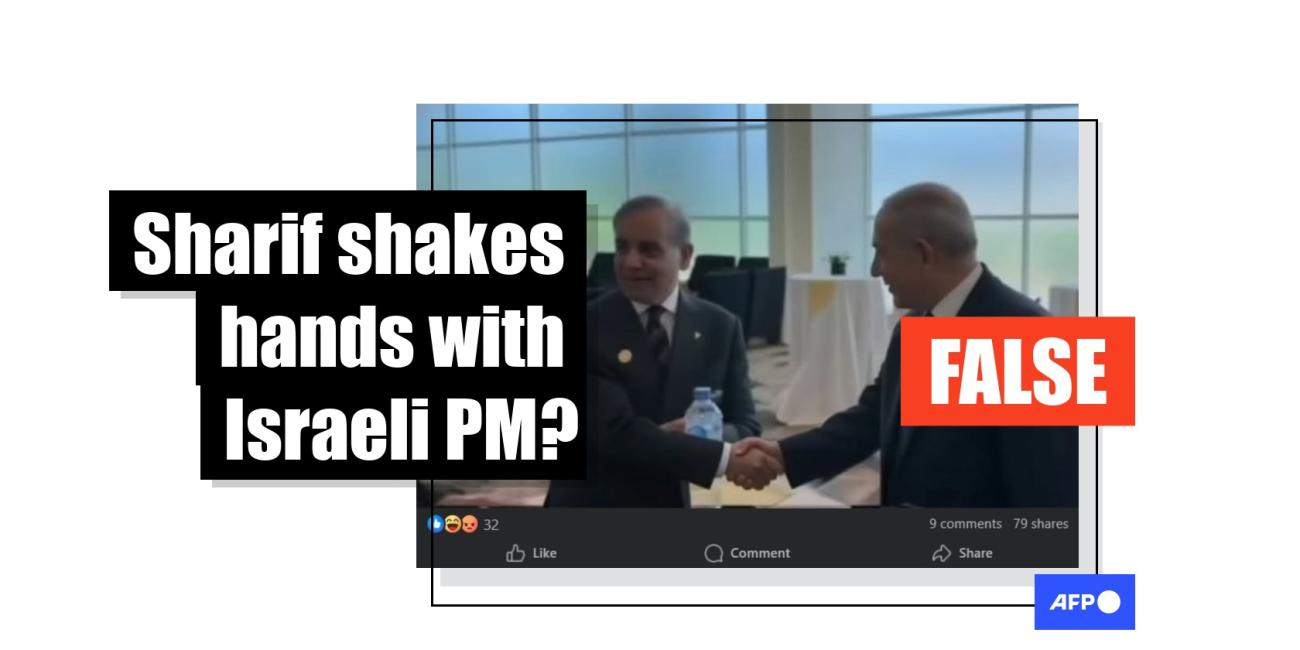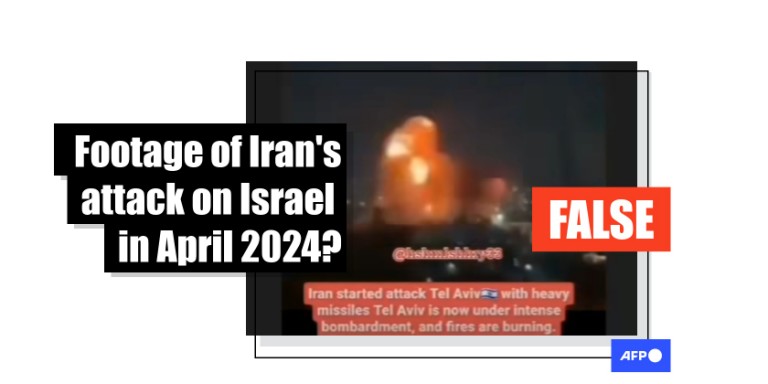
Video shows Ukraine missile strike in Crimea, not 'Iran's attack on Israel'
- This article is more than one year old.
- Published on April 19, 2024 at 14:51
- Updated on April 19, 2024 at 15:48
- 3 min read
- By Rossen BOSSEV, AFP Indonesia, AFP Bulgaria, AFP Middle East & North Africa
- Translation and adaptation Gemma CAHYA
"Iran's attacks have started," said Indonesian-language sticker text on a video shared on Instagram April 5, 2024.
Overlaid English text on the clip read: "BREAKING NEWS: Iran started attacking Tel Aviv with heavy missiles Tel Aviv is now under intense bombardment, and fires are burning."
The nine-second clip, which shows explosions at nighttime, has been viewed more than 1,900 times.

The post circulated days after a deadly strike on April 1 leveled the Iranian embassy's consular building in the Syrian capital, Damascus. At least 16 people were killed in the air strike, which was widely blamed on Israel.
Less than a week later, on April 13, Iran retaliated, launching a wave of hundreds of missiles and drones against Israel. The unprecedented Iranian attack, countered with the support of the United States and other Israeli allies, injured 12 people but caused no deaths, Israel's army said.
The strikes raised Middle East tensions to a dangerous new level six months into a deadly conflict between Israel and the Palestinian militant group Hamas in Gaza.
Similar posts were shared in early April by social media users in Pakistan, Colombia and Nigeria, and in mid-April -- after Iran's attack on Israel -- by users in Indonesia, Thailand, India, Bangladesh and Yemen.
However, the claim is false; the video in fact shows a Ukrainian missile attack on Sevastopol, a city in Russia-annexed Crimea.
Missile strike in Crimea
A reverse image search found a longer video was published on the official YouTube account of British newspaper The Telegraph on March 24, 2024 (archived link).
The one-minute, 14-second video is titled: "Huge explosions rock Sevastopol after Ukrainian missile attack."
At the 24-second mark of the video, a person can be heard speaking in Russian: "In the centre, it fell in the centre."
Below is a screenshot comparison of the video in the false post (left) and the video from The Telegraph (right):

The footage also appeared in a report about the Ukrainian attack on Sevastopol, published by the UK-based broadcaster ITN's On Demand News on the same day (archived link).
As reported by AFP at that time, Russia said it had repulsed a barrage of Ukrainian missiles fired at Sevastopol, the city on the Crimean peninsula, which it annexed in 2014. Ukraine later said that it had hit two large Russian landing ships and several infrastructure used by the Russian navy in the Black Sea during its strikes on Crimea.
Geolocation
Buildings with distinct features can seen at the four-second mark of the false video and the 41-second mark of The Telegraph's video.
They match multi-storey buildings at the corner of Kulikovo Pole Street and Generala Ostrovskaya Avenue in Sevastopol, shown by the street view imagery on Russia-based Yandex Maps (archived link).
Below is a screenshot comparison of the video in the false post (top left), the video from The Telegraph (top right) and the Yandex Maps imagery (bottom), with corresponding features marked by AFP:
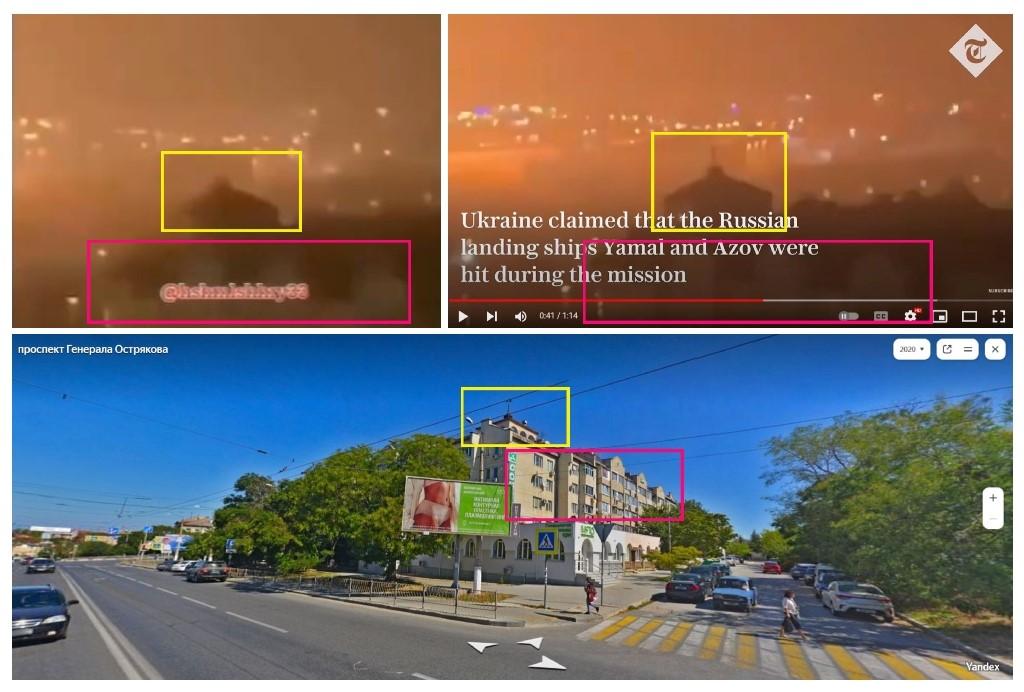
Other buildings, seen at the 24-second mark of The Telegraph's video, correspond with the imagery of Sevastopol's Mykoly Muzyky Street on Yandex Maps (archived link).
Below is a screenshot comparison of the video from The Telegraph (left) and the Yandex Maps imagery (right), with corresponding features marked by AFP:

AFP has debunked other misinformation about the conflict between Israel and Iran here.
Copyright © AFP 2017-2026. Any commercial use of this content requires a subscription. Click here to find out more.
Is there content that you would like AFP to fact-check? Get in touch.
Contact us
